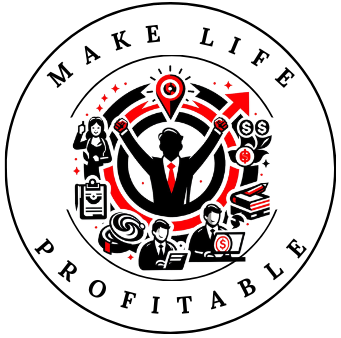Introduction to Blog Monetization

Monetizing a blog can transform a passionate hobby into a lucrative venture. However, understanding the intricacies of blog monetization is key to turning this dream into reality. In this post, we’ll explore the blog monetization landscape, outline the benefits, and provide a checklist to get you started. We’ll also delve into preparing your blog, choosing the right monetization strategies, and optimizing your efforts for maximum earnings.
One of the most important things you need to know right at the start is this is not a get rich quick venture. It could take considerable time to even make your first sale, but with diligence and consistency, you could make money doing this as many people before have.
Please note that many of these steps will be built out over the next few weeks so that you have a firm grasp of each step. I want you to be successful.
If you want to see what I used to get my website business going, click here!
Understanding the Blog Monetization Landscape
The blog monetization landscape is vast and varied, offering numerous ways to generate income. From affiliate marketing to selling your own products, the opportunities are plentiful. The key is to understand which methods align best with your blog’s niche and audience.
Why Monetizing Your Blog is Beneficial
Monetizing your blog not only can provide a steady stream of income but also validates your efforts and expertise. It allows you to reinvest in your blog, enhance content quality, and build a sustainable business. Additionally, it opens doors to collaborations, sponsorships, and more extensive opportunities in your niche.
An Overview of the Monetization Checklist
Before diving into monetization, it’s crucial to ensure your blog is ready. Here’s a quick checklist to guide you. Please do not underestimate these steps. They are very important!
- High-quality, relevant content.
- Positive user experience.
- Engaged community.
- Established online authority.
Preparing Your Blog for Monetization
Conducting a Content Audit for Quality and Relevance

Start by evaluating your existing content. Ensure it is high-quality, relevant, and valuable to your readers. Remove outdated posts, update information, and enhance articles with new insights. Quality content is the foundation of successful monetization.
Ensuring a Positive User Experience
User experience (UX) is paramount. A clean, intuitive design, fast loading times, and mobile responsiveness are critical. Ensure your site is easy to navigate, with clear calls to action and minimal distractions. Happy visitors are more likely to convert into loyal readers and customers.
Building an Engaged Community Around Your Blog Content
An engaged community is a powerful asset. Encourage comments, foster discussions, and connect with your readers on social media. Building relationships and trust with your audience can significantly boost your monetization efforts.
Establishing Online Authority in Your Niche
Position yourself as an authority in your niche by consistently delivering valuable content, collaborating with other experts, and showcasing your knowledge. This credibility attracts both readers and potential partners, enhancing your monetization potential.
Selecting the Right Monetization Strategies
Exploring Various Blog Monetization Methods
There are numerous ways to monetize your blog. Let’s explore some of the most effective strategies.
Affiliate Marketing – Partnering with Brands

Affiliate marketing involves promoting products or services and earning a commission on sales generated through your referral links. Choose products that resonate with your audience and provide genuine value. This method can be highly lucrative when done right.
Advertisement – Ad Networks and Direct Ad Sales
Advertising is a common monetization strategy. You can join ad networks like Google AdSense or negotiate direct ad sales with companies in your niche. While this can generate consistent revenue, it’s essential to balance ads to avoid overwhelming your readers.
Selling Digital Products and Services
Create and sell your own digital products, such as eBooks, courses, or printables. This not only establishes you as an expert but also provides a direct revenue stream. Offering services like consulting or coaching is another viable option.
Creating Membership Programs or Subscriptions
Membership programs or subscriptions offer exclusive content or benefits to paying members. This model fosters a sense of community and provides recurring income. Ensure your offerings are valuable and unique to attract and retain subscribers.
Optimizing and Scaling Your Monetization Efforts
Analyzing and Tracking Your Blog’s Revenue

Regularly monitor your blog’s revenue to understand what’s working and what’s not. Use tools like Google Analytics and affiliate dashboards to track performance. Analyzing data helps you make informed decisions and optimize your strategies.
Continuously Improving Content to Boost Value
Content is king. Continuously improve your posts by adding new information, optimizing for SEO, and incorporating multimedia elements. High-quality, valuable content attracts more readers, boosting your monetization efforts.
Expanding Your Monetization Portfolio
Diversify your income streams to minimize risk and maximize earnings. Explore new monetization methods, partner with different brands, and experiment with various content formats. A diverse portfolio ensures stability and growth.
Maintaining Transparency and Trust with Your Audience

Trust is crucial in monetization. Be transparent about your monetization efforts, disclose affiliate links, and ensure your recommendations are genuine. Maintaining trust fosters loyalty and encourages long-term success.
Conclusion
Monetizing your blog requires effort, strategy, and persistence. By understanding the landscape, preparing your blog, selecting the right strategies, and continuously optimizing your efforts, you can turn your passion into a profitable business. Remember, the key to successful monetization lies in providing value, building trust, and staying committed to your goals. Happy blogging!

